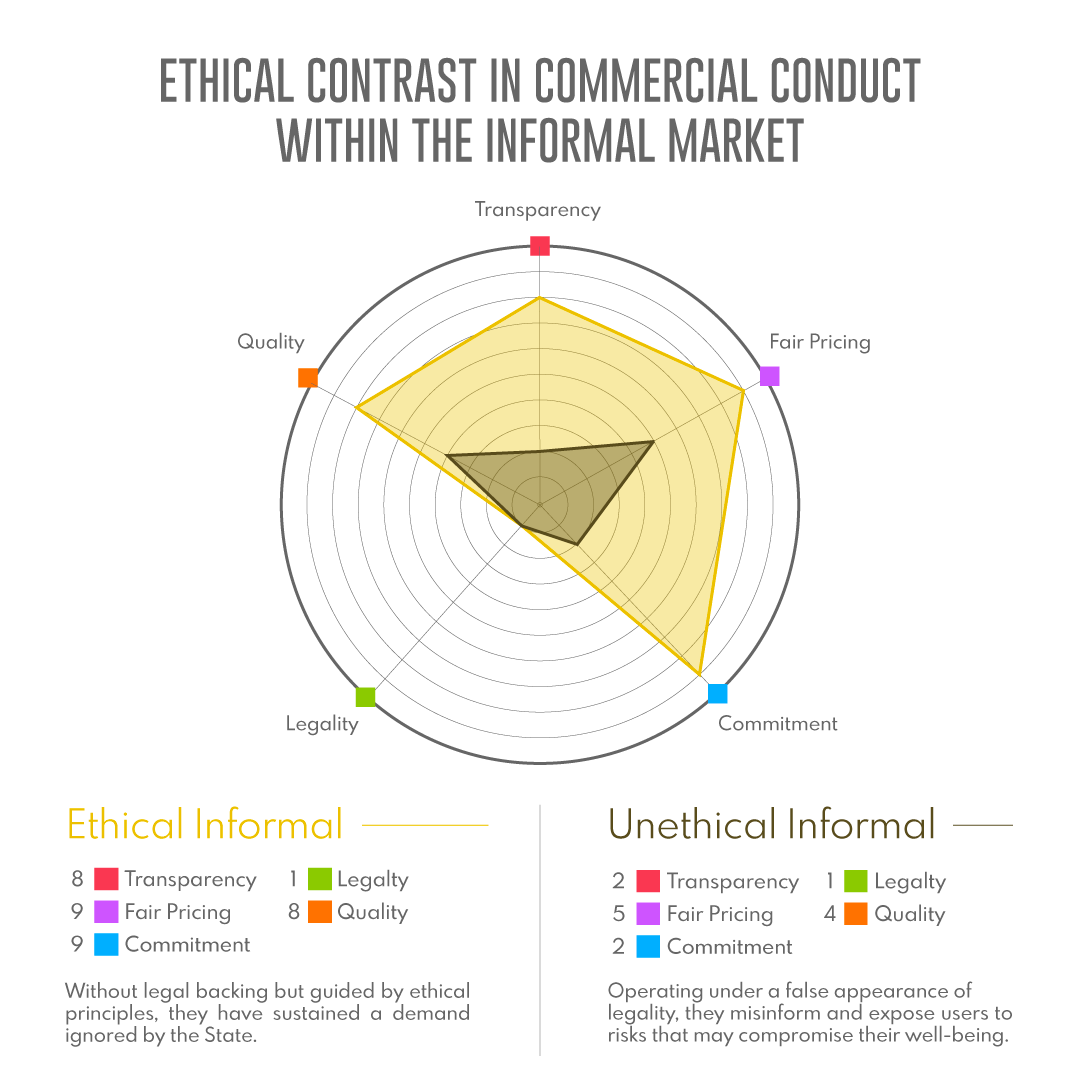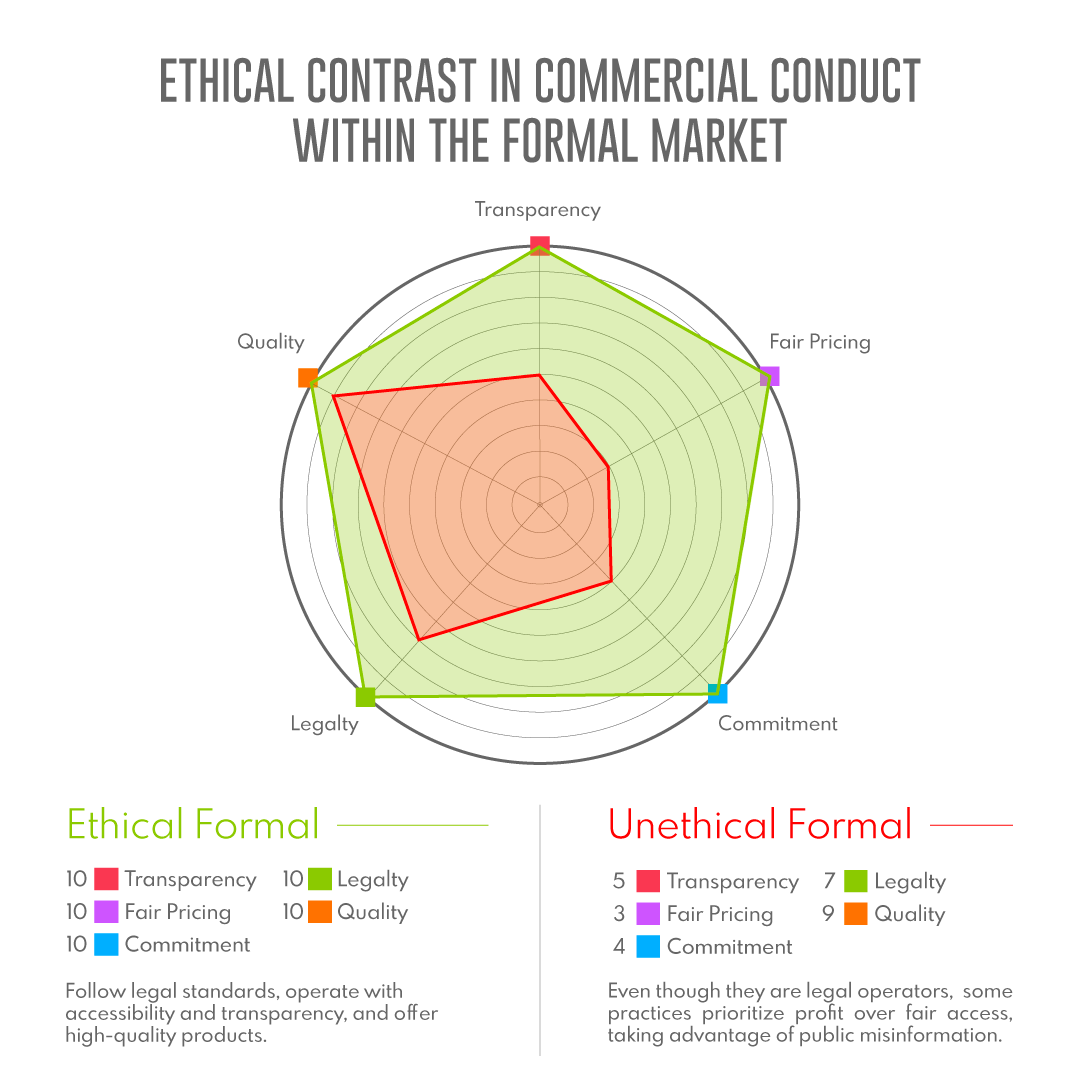The Impact of Ethics on Formal and Informal Trade

The existence of a law regulating the medicinal and therapeutic use of cannabis is a success story against the criminalization and stigmatization of cannabis users. Even though the informal or underground commercialization and distribution of cannabis is illegal, it is a market that already exists and seems to hold bargaining power over users. In other words, the formal market will not grow unless the informal demand is acknowledged.
In this context, business ethics play a crucial role in both the formal and informal cannabis markets. In the much bigger informal market, unethical vendors are common and pose real risks to users’ safety. At the same time, some informal sellers operate with more responsible practices. On the other hand, not all formal market sellers are entirely transparent—some engage in unfair competition. Below, we examine how ethical factors impact both types of markets.
Informal Market: Ethics in an Unregulated Environment
In the informal market, the absence of regulation means ethical standards depend entirely on the seller’s personal values. Many unethical informal sellers mislead users, selling low-quality or even dangerous products. Some go as far as pretending to operate as legal cannabis associations to appear legitimate. These setups can create a false sense of safety, putting users at serious risk.
However, there are also ethical informal sellers who are transparent about the commercial nature of their activities and work to offer good-quality products at fair prices. These actors have played a key role in sustaining and expanding a parallel cannabis economy—even before legalization—by responding to a demand ignored by the State. Some have even contributed to the development of local genetics and, despite the lack of official recognition, have managed to remain active by overcoming both regulatory and business-related barriers that still limit many from entering the formal system.

Formal Market: Ethics Among Legally Regulated Operators
In the formal market, ethical conduct is expected to be ensured through regulations designed to guarantee product quality, transparency, and user safety. Within this framework, ethical formal sellers distinguish themselves by strictly complying with legal requirements, offering high-quality products at fair prices, building transparent relationships with consumers, and competing fairly with other formal sellers. Their work is essential for building trust and developing a formal cannabis sector that is competitive, reliable, and sustainable.
Nevertheless, not all formal operators uphold these standards. Some unethical formal sellers adopt questionable business strategies, such as employing unauthorized dispensing methods or promotional practices not permitted under current regulations. This lack of transparency and commitment, along with regulatory noncompliance, undermines fair competition, harms the industry's long-term development, and diminishes the credibility of the formal cannabis market as a whole.

>
Comments
No comment at this time!
Leave your comment